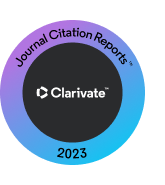Call for paper, thematic edition: Bioprocesses and Sustainability
Reference term
This call aims to open space for debate on Bioprocesses and Sustainability, which are closely interconnected concepts and play a vital role in addressing environmental and economic challenges.
Bioprocesses use biological systems, such as microorganisms, enzymes, and cells, to produce and transform materials into products with high added value. These processes can cover a wide range of applications, including the production of biofuels, biopharmaceuticals, wastewater treatment, recovery of agro-industrial waste, and much more.
On the other hand, sustainability involves making decisions and implementing practices that guarantee the long-term well-being of the planet and its inhabitants, covering several dimensions, such as environmental, social, and economic. When it comes to bioprocesses, there are several ways in which they can contribute to sustainability:
- Reduced Environmental Impact: Bioprocesses often have a smaller environmental footprint than traditional chemical processes. They can reduce greenhouse gas emissions, minimize waste production, and use renewable resources. For example, producing biofuels from algae or biomass can be more sustainable than fossil fuels.
- Resource efficiency: Bioprocesses can be highly efficient in using raw materials, reducing resource consumption, and conserving energy. The microorganisms used in bioprocesses are particular and can convert substrates into desired products with minimal generation of byproducts.
- Biodegradability and Waste Reduction: Many bioproducts and byproducts are biodegradable, making them less environmentally harmful. Bioprocesses can also help manage waste streams, such as using microorganisms or enzymes to treat wastewater or producing high-value products from waste materials.
- Renewable Resources: Bioprocesses can use renewable resources, such as agricultural residues, forest residues, or algae, reducing dependence on finite fossil resources.
- Reduced use of chemicals: Bioprocesses generally require fewer chemical inputs, reducing the risk of pollution and the environmental impact of chemical manufacturing.
- Sustainable Agriculture: Bioprocesses can be linked to sustainable agricultural practices, such as biofertilizers and biopesticides, which reduce the need for synthetic chemicals and promote agriculture with less environmental impact.
- Carbon sequestration: Some bioprocesses, such as those involving certain plants or microorganisms, can sequester carbon dioxide, contributing to carbon capture and mitigating climate change.
- Economic Viability: Sustainable bioprocesses can develop new industries and employment opportunities, thus contributing to economic sustainability and environmental and social aspects.
In conclusion, bioprocesses are a promising path to achieving sustainability goals by offering more environmentally friendly and resource-efficient alternatives to traditional industrial processes. However, it is crucial to consider several factors, including the choice of raw materials, the overall life cycle impact, and ensuring that these processes are carried out socially to maximize their contribution to sustainability.
This thematic edition will consist of 15 articles covering the items above. If there are more than 15 approved works, they will form a thematic edition 2 or be allocated to RBCIAMB's continuous flow editions, at the editorial team's discretion.
Manuscripts must meet the RBCIAMB submission conditions, its flow and evaluation criteria, and its rules and guidelines in the Submissions tab on the website. Articles must be submitted via the system https://www.rbciamb.com.br/Publicacoes_RBCIAMB/about/submissions. Two section options will be available when submitting: article and thematic edition. For this call, choose the second option. And, in comments to the editor, inform that the submission refers to the thematic edition.
Articles can be sent in Portuguese or English; if approved, the authors must provide the translation into English. The publication will only be in English.
This thematic call will be open from November 1, 2023 to January 31, 2024.
RBCIAMB is classified as A3 in Qualis Capes.
Questions and clarifications will be answered via email: rbciamb@abes-dn.org.br.
Guest Editor: Helen Treichel – Universidade Federal da Fronteira Sul (UFFS)
Executive Editor: Soraia Fernandes – Associação Brasileira de Engenharia Sanitária e Ambiental (ABES)
Editor in Chief: Valdir Fernandes – Universidade Tecnológica do Paraná (UTFPR)





















